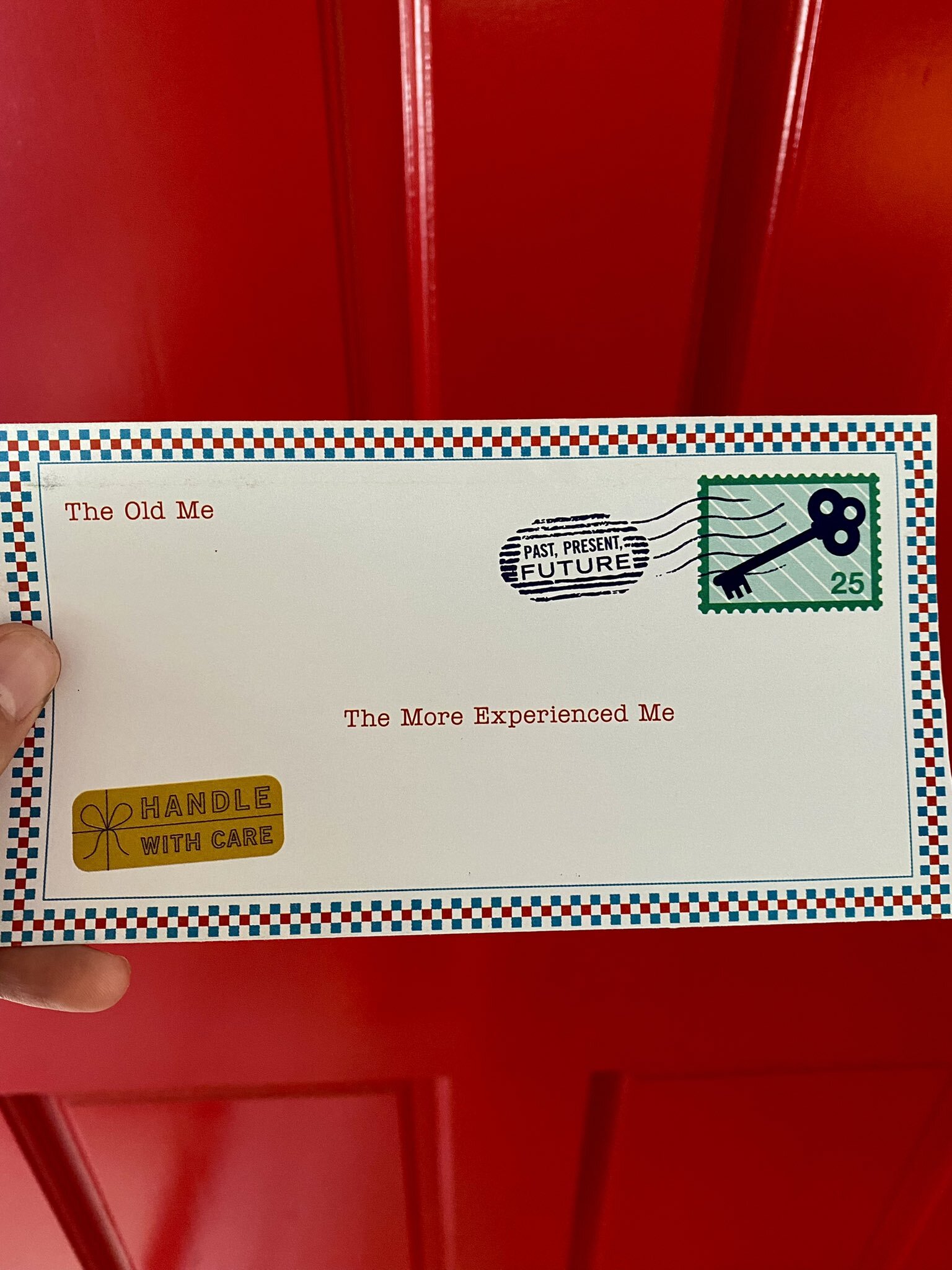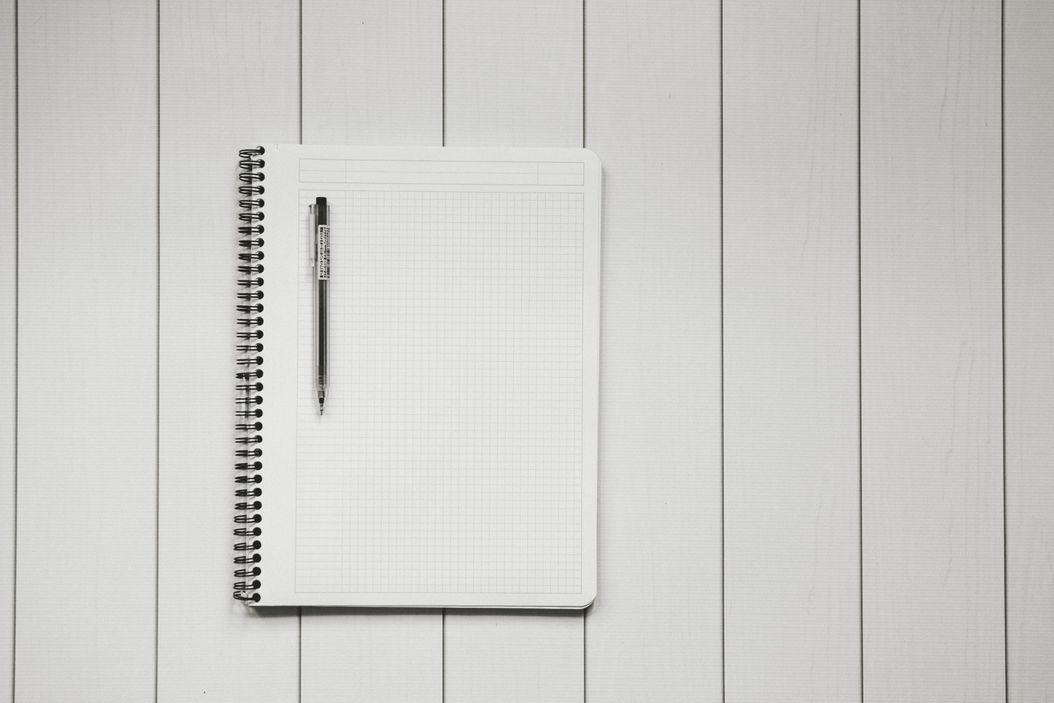I mailed myself a birthday card this year. Why? I knew it was a special one with the big milestone of turning 25.
It was the middle of my Bill Gate’s inspired Think weekend back in February where I escaped my technology for a weekend to look inward before my birthday. I had some enlightened clarity on life without the chaos of the external world bundled up by the fireplace in a snowy northern Michigan cottage.
I thought at first, “Waste money on a stamp?! Why would I ever do such a thing?”
I spend that 50 cents on forever stamps to mail friends and family cards without blinking an eye. But to mail myself something… that was a novelty.
This practice has since become a part of my self-love practice. Something I do at least every couple months as a check in.
I wanted to have something to store in my shoebox to come back to in the future and remind myself in a glimpse of what was meaningful to me at the time.
The majority way I like to receive love or as author Gary Chapman describes as my “love language” is words of affirmation. This means that I highly value reading supportive words as opposed to receiving a gift, or act of service.
Not only do I feel loved, but a letter simultaneously jumpstarts my mindset to reflect on what has happened and what I care about. It is a forcing function to create a time for pause to capture what feels so obvious today and will be a distant foggy memory in the days to come.
We live in the age of consumption where we feel we are drowning in a sea of information. The current of news and drama can drift us to the other side of the ocean. It is like a ship without a rudder. No agency over where it steers. Writing a letter is a grounding human experience to sit down as those before us did with a piece of paper and pen. It is an escape of the waves of noise and envision your present self connecting the experience of your past self to your future self.
Our brains are fallible with fleeting memories, so a letter acts as a vehicle to time travel and trigger what we have forgotten.
The format that has emerged for me are these four questions from the core pillars of actions and feelings:
-
What recent wins have I had?
-
What do I want to improve on?
-
What am I most excited about?
-
What am I most worried about?
In reflecting on what is changing, it is a qualitative sign of growth to reread how my life has changed. I’ve been writing a new letter every two months or so as my life has been changing often and that is the farthest I can see out in the future.
You don’t know what to write about? The audience is for yourself so don’t limit yourself. Here are some other questions to kickstart the process for you:
-
What do you want to remember about 2021 thus far?
-
Who have you met and how have they impacted you?
-
How have your values, priorities, and beliefs changed?
-
What struggles have you overcome and learned from them? How have you felt overall?
-
What hobbies do you want to move up in your “eventually do” list?
-
What do you wish were different?
-
What wins have you accomplished on your projects, at work, and in relationships?
These letters aren’t completely a foreign concept to me. The first time I wrote myself was for an exercise my sorority did my first year of college in 2015. I opened that letter three years later and was flashed backward into time when I considered dropping out of the club. I felt like I didn’t belong and I was going to give it one more week before quitting. Years later, I lived with those girls every year even when I moved to Chicago. The trips we had together to Florida and New Jersey are ones I wouldn’t trade for the world. They’ve bailed me out when I needed them and my life would be far different if I had changed my mind.
I had so much compassion and warmth toward myself of not stressing out if I still didn’t have my future figured out. Senior year Jen was far from polished and figuring her life out.
Why are letters filled with so much kindness?
The format is implicitly softer to use. The phenomenon of Solomon’s Paradox explains that we are much kinder with advising our friend, so writing oneself as if they were a friend is a kinder way of treating oneself. We give better advice to others than we give to ourselves. This is because of not knowing everything becomes the advantage of a third party.
Others can figure out what is more important since they are not get tangled in the weeds within our own minds. This is the curse of knowledge. According to organizational psychologist Adam Grant, “We have too much information about ourselves to make good decisions.” Research by psychologist Hal Ersner-Hershfield found that those who most identify with their future selves do a better job planning for the future.
Give it a shot and try writing yourself a letter. It’s worth an experiment to see how it goes. I have never regretted writing my future self.


